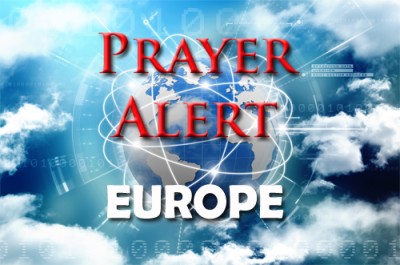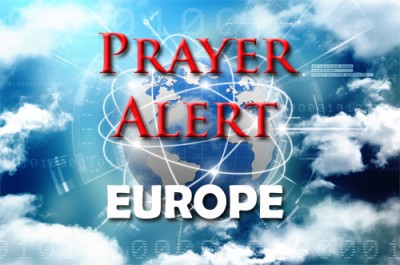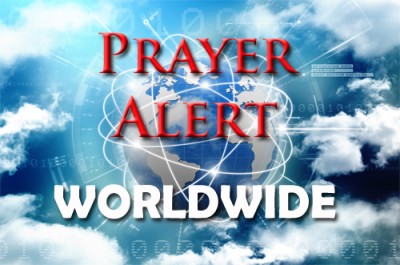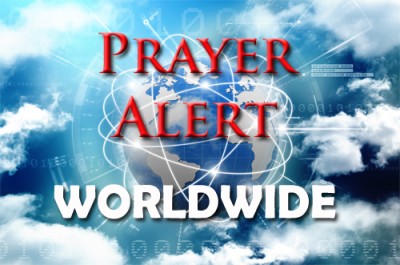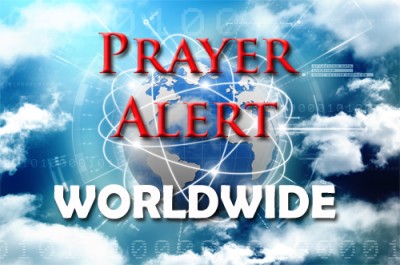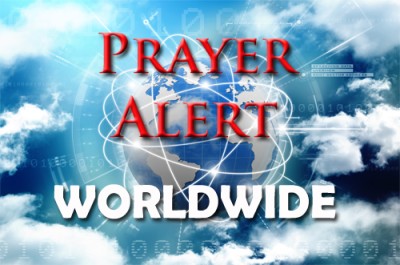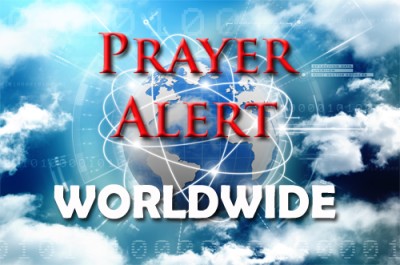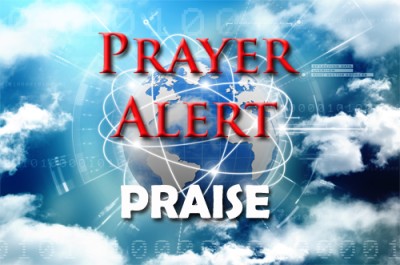Poland: struggle to control state media
18 Jan 2024Poland's main evening news studio is under heavy police protection amid a fierce battle for control of the country's media landscape. This struggle emerged following elections that ended eight years of populist rule, leading to promises of media balance by the new coalition government led by Donald Tusk. Under the previous right-wing administration, public TV and radio channels had become highly partisan. In December, the culture minister replaced TVP's top management, resulting in the 24-hour news channel being temporarily taken off the air. Opposition figures protested the move, and rival management teams vied for control. While protesters no longer occupied TVP's reception area, security remained tight, and journalists worked from makeshift spaces, including a converted bathroom. TVP Info, the 24-hour channel, and the flagship evening news show, renamed ‘19:30’, eventually returned with a focus on a more inclusive and balanced approach. The new editor, Pawel Pluska, emphasised a shift away from divisive language and pledged to present diverse viewpoints. Despite ongoing protests by some, there is a clear effort to promote media neutrality in Poland, following years of media polarisation during the previous government's rule.
France: Macron shifts to the right
18 Jan 2024On 16 January Emmanuel Macron made a notable shift to the political right during a televised press conference, signalling a change in his political stance. One week earlier, he had appointed Gabriel Attal as the youngest prime minister in French history, leading a noticeably more right-wing cabinet. The move appears to be a response to the growing challenge posed by the hard-right nationalists led by Marine Le Pen's, who are tipped to win the European elections in June. Macron emphasised the importance of instilling French republican values in schoolchildren. He proposed measures like school uniforms, learning the national anthem, civic service for 16-year-olds, and cracking down on drug gangs. He also announced policies to combat the declining birth rate, including improved access to fertility treatments and enhanced parental leave. The press conference format allowed Macron to delve into details, but it also risked portraying him as hiding a lack of substance behind torrents of words. Marine Le Pen dismissed the event as ‘yet another interminable jabber’.
On 17 January the US military launched a fourth round of missile strikes targeting Houthi-controlled sites in Yemen, aiming to prevent imminent threats to merchant vessels and US Navy ships in the region. These actions come after months of Houthi attacks on ships in the Red Sea, causing disruptions in trade between Asia and Europe. The Houthis, backed by Iran and controlling most of Yemen, claim their actions are in solidarity with Palestinians in Gaza. The Biden administration has now decided to designate them as ‘global terrorists’, reversing a decision made in 2021; however, some commentators felt that Biden was ‘playing with fire’, possibly worsening an already dire humanitarian situation in Yemen. Despite sanctions and previous military operations by US and British forces against the Houthis, they continue to target numerous vessels. The Pentagon press secretary confirmed that the US would persist in taking military action to try to prevent further attacks.
Cesar Suarez, the prosecutor investigating the recent attack on a local TV station, was shot dead on 18 January. The attack occurred on 10 January: a group of individuals stormed the building, setting fires and causing extensive damage. Suarez, who was actively investigating this attack, was killed in what appears to be a targeted assassination. The TV station attack has raised concerns about press freedom and safety in Ecuador, as it comes amidst a backdrop of political tensions and unrest in the country. The prosecutor's murder further underscores these concerns and raises questions about the safety of those investigating such incidents. The authorities in Ecuador have condemned the attack on the TV station and the killing of the prosecutor, and have promised to bring those responsible to justice. However, the incident highlights the challenges and risks faced by those working to uphold the rule of law and protect press freedom in the country.
Pakistan / Iran: retaliatory airstrikes
18 Jan 2024On 18 January Pakistan launched retaliatory airstrikes against alleged ‘terrorist hideouts’ in Iran, killing seven. This followed Iran's strikes on Pakistani soil on the 16th, resulting in the deaths of two children, which targeted Jaish al-Adl, an ethnic Baloch Sunni group which has previously launched attacks inside Iran. Pakistan stated that its actions were based on credible intelligence of impending large-scale terrorist activities and emphasised its respect for Iran's sovereignty and territorial integrity. The airstrikes have heightened tensions in the region, adding to the broader Middle East crisis. Earlier in the week, Iran also conducted strikes in Iraq and Syria, targeting the alleged perpetrators of the bomb attack in Kerman which claimed 84 lives. China, a key ally of both countries, called for restraint and de-escalation in the situation. Pakistan's action is seen as an attempt to restore deterrence amid the volatile dynamics in the region.
Republican candidate-presumptive Donald Trump, fresh from an overwhelming victory on 15 January in the Iowa presidential primary, appeared in a Manhattan federal court the following morning. Despite extremely cold temperatures and low overall voter turnout due perhaps to the perception that his win was inevitable, Trump secured more votes in Iowa than all his rivals combined. The trial in Manhattan, in connection with his allegedly defamatory comments about E Jean Carroll in 2019, aims to determine compensation costs, if any, for his remarks. This transition from the campaign trail to the courtroom underscores the challenges Trump faces in his quest to reclaim the White House while dealing with various criminal charges and indictments. President Joe Biden recognised the electoral battle ahead, characterising it as a showdown between his administration and ‘extreme Maga Republicans’. Meanwhile, other potential Republican contenders like Ron DeSantis and Nikki Haley expressed their views. DeSantis focused on campaigning in South Carolina, while Haley emphasised addressing key issues such as the economy, border security, education, and national stability, irrespective of ongoing investigations.
The announcement on 17 January that Azali Assoumani had been re-elected president of the Comoros resulted in numerous protests and clashes. Demonstrators in the capital, Moroni, vandalised a former minister's house and blocked roads during the day, leading to confrontations with police who used tear gas and made arrests. In the evening, the government imposed a night curfew, citing ‘public necessity’. Officials announced that Assoumani had won 62.97% of the vote, but opposition leaders alleged fraud, including ballot-stuffing and inconsistent results, and jointly demanded the annulment of the result. The UN called for restraint amid mounting post-election tensions and urged the authorities to ensure a safe environment for peaceful assembly and expression of views. The Comoros, a politically volatile three-island chain with a history of coups, experienced a surprisingly low voter turnout of 16%, and discrepancies in vote counts raised concerns about the election's regularity.
A Kentucky high school student named Sophy Jones decided to address mental health issues and suicide concerns in her school by starting a TikTok-inspired prayer wall. She initiated this project to spread God's message and provide encouragement to her fellow students who were struggling. The prayer wall, adorned with Bible verses on sticky notes, has made a significant impact, offering comfort and support. Jones began this initiative last year, with the help of a friend, Evelyn Philpot, and they both belong to First Priority, a student-led Christian organisation at their school. Todd Lawson, the organisation's director, expressed pride in the girls' efforts, emphasising the importance of prayer and God's love in their lives. For Jones, prayer is a source of love and comfort, reminding her of God's significance in her life. The project has been embraced by the students, offering a sense of importance and support to those who need it most.
